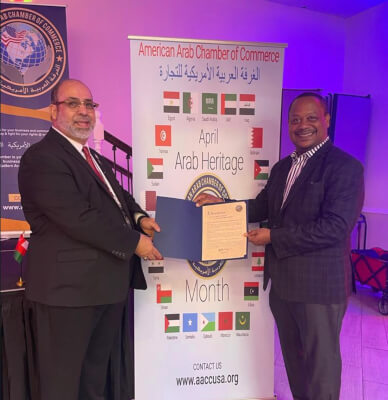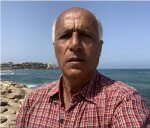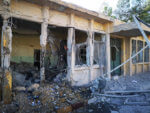Arab Youth Survey raises some serious concerns
A study by one of the world’s largest PR companies, Burson-Marsteller, of Arab young people in 16 countries in the Levant, Gulf and North Africa offers disturbing insight into the regional concerns and the powerful influence of the mainstream Western news media. Not surprisingly, the further away Arab youth are from striking distance of Israel’s human rights brutalities, the more optimistic they are about the future.
By Ray Hanania
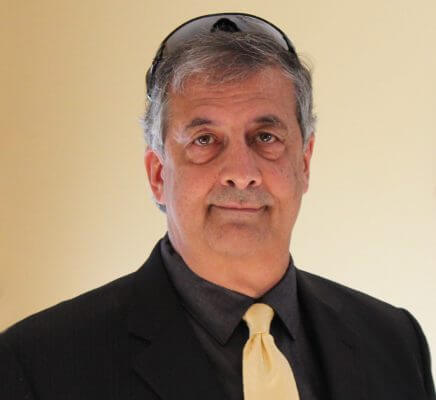
ASDA’A Burson-Marsteller, the American-based public relations company with offices in Dubai, released its 10th Annual Arab Youth Survey this week, offering a mix of shrugs, surprises and shock.
BM conducted 3,500 face-to-face surveys of young Arabs between the ages of 18 and 24 located in 16 Arab Countries in three regions: six Gulf Cooperation Council states (Bahrain, Kuwait, Oman, Qatar, Saudi Arabia and the UAE); in five North African states (Algeria, Egypt, Libya, Morocco, and Tunisia), and youth in four Levant states (Iraq, Jordan, Lebanon and Palestine). Yemen was also mixed in but not by region while Syria was excluded due to the country’s civil war. The respondents were equally divided between men and women.
Although the survey suggests most Arab youth trust Russia over the United States, the real surprise is the deepening rift that exists between how youth in the Levant differ from youth in North Africa and the Gulf.
For example, more than 80 percent of young people polled in Lebanon, Palestine and Jordan said they believe that over the past decade, the Arab World has been headed in the wrong direction. In contrast, less than half of the young people surveyed in North African and the Gulf agree.
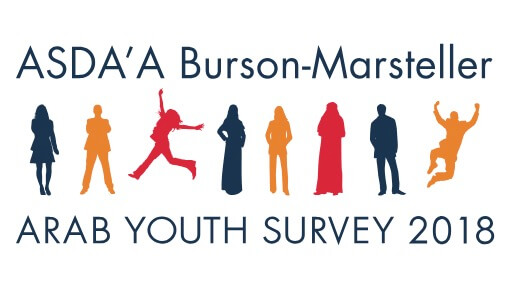
That could be easily explained by the different challenges the three regions face. Jordan, Lebanon and Palestine are adjacent to Israel, one of the most disruptive nations in the Middle East. Events there have directly impacted citizens in all three nations and in many cases citizens of all three Arab nations have been killed by Israeli forces, most in Palestine.
While Israel’s oppression of the Palestinians and its threats to Jordan and Lebanon may be constant threats, they are distant geographically from North African and Gulf Arabs.
The significant divide between youth in the Levant (Palestine, Jordan, Iraq and Lebanon) and the Gulf and North Africa was further widened on the question of their feelings about the future.
Young people in the Levant were significantly more pessimistic about their future, while young people in North Africa and the Gulf were far more optimistic. More than 86 percent of respondents in the Levant were pessimistic about the future, while 91 percent of young people in the Gulf were optimistic about the future. Young people in North Africa were almost equally divided about the future with a majority, 51 percent saying they are optimistic, and 46 percent saying they are moving in the wrong direction.
One area in which all youth seem to agree, however, is in recognizing rights of women who are oppressed at varying degrees throughout the Arab World and Middle East. The respondents overwhelmingly, more than 80 percent, applauded Saudi Arabia’s efforts to expand women’s rights by giving women the right to drive in the Kingdom.
On average, 11 percent of all respondents in the 16 nations and territories, supported the expansion of rights to women, while 19 percent of Saudi men and 17 percent of Saudi women opposed allowing women to drive.
More than 78 percent of all respondents also said they believe that the terrorist movement Daesh will continue to weaken, compared to 61 percent who felt that way last year in a similar survey by Burson-Marsteller.
Probably the most disturbing survey results were found in the questions involving where young people in the Arab World get their news and who they trust the most.
Not surprisingly, young Arabs are turning more and more to Social Media for news and information, with more and more Arabs turning away from traditional news sources like Television, online news websites and newspapers. Magazines and radio, however, showed an increase as a source of news for young people.
Popularity in Facebook as a source of news almost doubled in popularity, rising from 34 percent as a source for news in 2017 to 61 percent in 2018.
Yet the most significantly striking and most disturbing result is which media the young people, as a whole, turn to as being more trustworthy. Of the respondents, 75 percent named CNN, the pro-Israel often biased anti-Arab media source as their most trusted news source, followed closely by BBC (72 percent), MBC (71), Facebook (71), Google (70), Al Arabiya (64), Sky News Arabia (61) and Al Jazeera (53).
If the survey separated respondents in the Levant from respondents in the Gulf and North African, you could see an understanding pattern with the majority of CNN’s bias focused on its slanted coverage towards Israel and against Palestinians and critics of Israel.
I trust the Burson-Marsteller results because the public relations firm has a reputation of standing up to political bullying. While it has major Arab clients and a deep understanding of the Arab World, it has intentionally avoided doing business with Israel.
Burson-Marsteller is one of the world’s largest PR firms, operating 67 wholly offices and 71 affiliate offices in 98 countries in six continents with a large presence in the Middle East. In 2011, Burson-Marsteller smartly refused to take Israel on as a client.
Let’s face it, Israel is justifiably criticized for abuses of Arab (Muslim and Christian) human rights inside Israel and in territories it controls directly in Palestine, in Syria’s Golan Heights, and indirectly in the Sinai Peninsula in Egypt.
Israel still occupies locations holy to Muslims and Christians and more than 99 percent of the victims of its military assaults are Arabs or Europeans working for Arabs. There have been a few Americans killed by Israel’s military, but mainly because of a powerful pro-Israel media presence in the United States, led by CNN, Israel has never been forced to account for those killings. One of them is the killing of American peace activist Rachel Corrie.
Still, although the PR giant has refused to represent Israel in the past, it’s representation of Arab nations, political parties and businesses has been restrictive, avoiding badly needed campaigns to expose Israel’s history of human rights violations and violence against Palestinians.
I wonder if the survey had included a question along those lines, “Do you believe Israel abuses the rights of Arabs,” a significant majority would agree. Although, the number disagreeing would still be large considering so many Arabs apparently turn to the pro-Israel news agency CNN for their news about the Levant.
To read the Burson-Marsteller survey, you can click here.
(Ray Hanania is an award-winning Palestinian American syndicated columnist, author and a former Chicago City Hall and political reporter. He is the President and CEO of Urban Strategies Group. Reach him on his personal website at www.Hanania.com, or email him at rghanania@gmail.com.)


- Israelisnipers shooting and killing hospital workers in Gaza - December 11, 2023
- CAIR Condemns Israeli Executions of Wounded, Unarmed Palestinian in West Bank - December 11, 2023
- Arab and Muslim American voters face a “simple choice” between Biden’s inhumanity and Trump’s edgy politics - December 9, 2023















